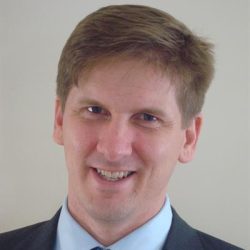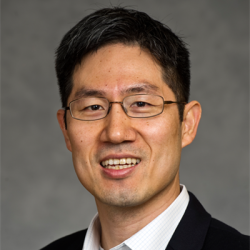Sustainability Council Members
Chair
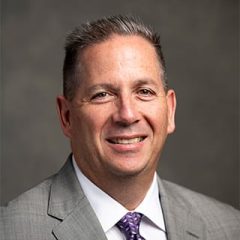
Mike Howard
Executive Vice President
Mike Howard is a member of President Sunil Kumar’s senior leadership team. As chief administrative officer of the university, Mike is responsible for oversight and coordination of core administrative functions including Finance, Human Resources, Information Technology, Operations, Audit & Management Advisory Services, Strategy & Program Development, Sustainability and Investment Office Administration.
In past positions, Mike built Smith College’s response to climate change and increased the college’s commitment to impact investing for its endowment. Mike is leading similar initiatives here at Tufts including serving as the chair of the Sustainability Council.
Council Members
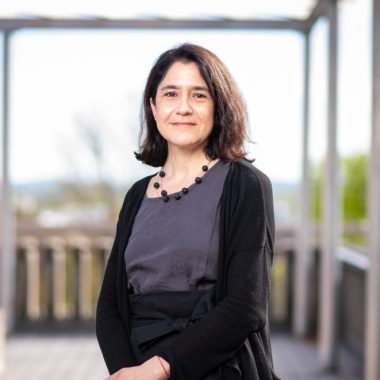
Bárbara M. Brizuela
Dean of the School of Arts & Sciences
Bárbara studied in Argentina and the U.S., where she moved in 1995. She has been a kindergarten and seventh grade teacher in Argentina as well as a Spencer Foundation research training grantee. Her current research focuses on children's learning of elementary mathematics, including early algebra, children's learning of the notational number system and other notational aspects of mathematics, and mathematics teachers' learning and professional development. Since 1998, she has been involved in research on children's early algebraic reasoning, exploring the intertwined nature of arithmetic and algebra (see 'Early Algebra'). Her main areas of interest are mathematics education, early childhood education, and cognitive development. Her research is grounded on the fundamental belief that our primary goal as educators is to understand and highlight children's thinking and reasoning in productive ways.
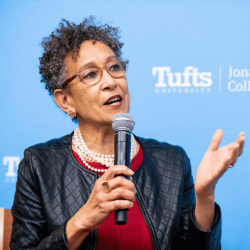 Dayna Lee Cunningham
Dayna Lee Cunningham
Dean of Tisch College of Civic Life
Dean Cunningham has devoted her career to promoting civic participation, building community partnerships, and advocating for underrepresented communities. At Tisch College, she has articulated a bold vision for building robust, inclusive democracy for an increasingly multiracial society.
Before leading Tisch College, Dean Cunningham was the founder of Community Innovators Lab (CoLab) at the Massachusetts Institute of Technology (MIT). At CoLab, she built large-scale, multi-sector development collaborations that combined sustainability, wellness, and democratic control of economies in marginalized communities. A civil rights lawyer by training, Dean Cunningham worked with the NAACP Legal Defense and Educational Fund, litigating cases in Arkansas, Tennessee, Louisiana, Mississippi, and other states in the South. She has also served as associate director at the Rockefeller Foundation and program director of the ELIAS Project at MIT.
Dean Cunningham earned an undergraduate degree from Harvard and Radcliffe Colleges, a JD from New York University School of Law, and an MBA from MIT Sloan School of Management.
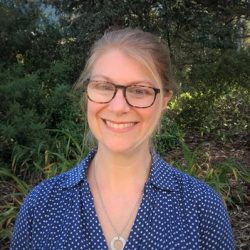 Kathryn Davies
Kathryn Davies
Assistant Teaching Professor; Director, Masters of Science in Sustainability program Department of Urban & Environmental Policy & Planning
Kate's work focuses on navigating equitable transformations to sustainability using a range of collaborative and participatory methods. Recent projects include developing serious games to address air quality challenges in the Salt Lake Valley and using scenario planning techniques to improve cumulative effects management in Aotearoa New Zealand's coastal and marine areas. Kate has also worked with the Intergovernmental Science-Policy Platform on Biodiversity and Ecosystem Services (IPBES) to develop scenarios that inform global and regional biodiversity and ecosystem service assessments. Through the co-production of knowledge and practice, these projects aim to improve social and ecological outcomes and enhance the resilience of communities by supporting individuals and institutions to grapple with environmental change across interests and scales.
Prior to joining UEP, Kate has worked as a social scientist for the National Institute of Water and Atmospheric Research (NIWA) in Aotearoa New Zealand, an urban planner in Salt Lake City, and a Research Assistant Professor in Geography at the University of Utah. She holds a Ph.D. in Environmental Science from the University of Auckland and a B.A. in Environmental Studies from Oberlin College.
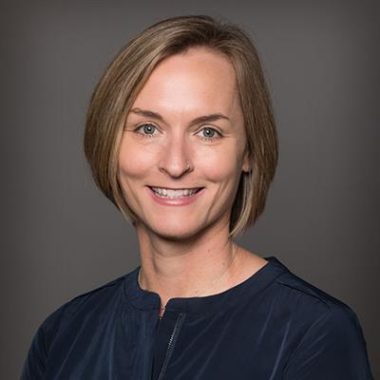 Mary Davis
Mary Davis
Senior Associate Vice Provost for Education
Associate Professor, Department of Urban and Environmental Policy and Planning
Graduate School of Arts & Sciences
Dr. Mary Davis is an associate professor in the Department of Urban and Environmental Policy and Planning and the Senior Associate Vice Provost for Education at Tufts. Professor Davis’ research explores the relationship between work and well-being as a universal human experience. An interdisciplinary labor economist and public health scientist by training, Dr. Davis studies a wide range of occupational groups, from fishers in coastal Maine to sweatshop workers in Vietnam and beyond. In a recent study funded by the US Department of Labor, she examined whether gig economy workers suffer worse health outcomes than hourly paid employees. These findings shed light on the inequality of health outcomes for low-income, minority, and female workers, both domestic and international. Dr. Davis was honored by the American College of Occupational and Environmental Medicine with the award for best publication in 2021 for her work on the health effects of night and irregular shifts. Her first book entitled Jobs, Health, and the Meaning of Work (MIT Press, 2024) was published in 2024. Her most recent work focuses on the labor market and work experience of nurses, using an anthropological approach to explore the challenges and opportunities for the profession and the US healthcare system more broadly.
Professor Davis received degrees in Economics from the University of Miami (BA) and the University of Florida (MS/PhD). She recently completed an associate’s degree in nursing from Bunker Hill Community College (ADN). She has held research appointments at the Harvard School of Public Health, University of Maine, University of Massachusetts Boston, Woods Hole Oceanographic Institution and Boston University. Professor Davis teaches a range of urban planning and policy courses at Tufts, including economics, public health, built environment, and statistics, and is known for her innovative teaching practices engaging poetry as a teaching and learning tool. She served as department chair from 2016 to 2021 and again from 2023 to 2024.
Eric Hines
Professor of the Practice and Kentaro Tsutsumi Faculty Fellow Civil & Environmental Engineering
Eric Hines, Ph.D., P.E., F.SEI directs the offshore wind energy graduate program at Tufts University, where he is a Professor of the Practice in structural engineering. He is President of Hines & Partners, LLC, a consulting firm specializing in offshore wind energy, structural design, and engineering creativity. Dr. Hines has over 20 years of experience engineering innovative infrastructure. He works at the technology/policy interface to develop systems-level design concepts and has received numerous awards for his work in industry-driven research. He studied engineering and public policy as an undergraduate at Princeton University and as a Fulbright Fellow in Germany. He holds an M.S. in applied mechanics and a Ph.D. in structural engineering from the University of California, San Diego.
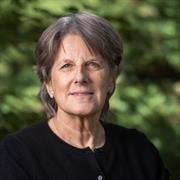 Barbara Kates-Garnick
Barbara Kates-Garnick
Professor of Practice
The Fletcher School of Law and Diplomacy
Barbara Kates-Garnick most recently she served as the Undersecretary of Energy for the Commonwealth of Massachusetts where she was responsible for guiding energy policy. She also served as the Co-chair of Massachusetts’ Global Warming Solutions Act Implementation Advisory Committee that oversees the implementation of the Commonwealth’s Global Warming Solutions Act. She has had an extensive career in energy, environment, and clean technology that has spanned the private and public sectors and included the creation of a clean technology incubator at New York University Polytechnic School of Engineering where she also taught courses on energy policy. She served as corporate officer at a major U.S. utility, a consultant on strategic energy initiatives, and as a public utility regulator. At Fletcher, in addition to teaching, she will serve as the interim director of the Energy, Climate and Innovation Program at the Center for International Environment and Resource Policy where she will pursue her interests in energy innovation, clean energy technology, and energy policy. Kates-Garnick holds a PhD from The Fletcher School.
Kyongbum Lee
Dean
School of Engineering and Karol Family Professor
As Dean of the School of Engineering, Kyongbum Lee is committed to providing a diverse and inclusive learning and working environment, building community, innovating undergraduate education and transforming graduate education, connecting people and ideas for innovation, enhancing financial resources to support our mission, and empowering scholarship, discovery, and invention.
Dean Lee's research interests include metabolic engineering, tissue engineering, and systems biology. His research group is interested in the study of cellular metabolism and its role in directing biological function. It seeks to translate these basic insights and technologies into applications leading to engineering practice and meaningful health outcomes. The group is particularly interested in discovering therapeutic and diagnostic targets for metabolic diseases such as obesity.
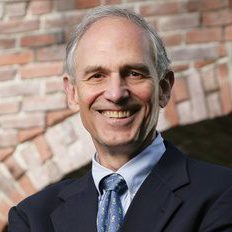
William Moomaw
Co-Director of the Global Development and Environment Institute and Professor Emeritus of International Environmental Policy
The Fletcher School of Law and Diplomacy
William Moomaw is Emeritus Professor of international environmental policy and founding director of the Center for International Environment and Resource Policy at Fletcher. He currently serves as co-director of the Global Development and Environment Institute at Tufts, which he co-founded. He had a 26-year career in chemistry and environmental studies at Williams College, where he directed the Center for Environmental Studies. He served as AAAS Science Fellow in the U.S. Senate, where he worked on legislation that successfully addressed ozone depletion, and on legislation responding to the 1973 energy crisis.
He began working on climate change in 1988 as the first director of the climate program at World Resources Institute in Washington. He has been a lead author of five Intergovernmental Panel on Climate Change (IPCC) Reports. The IPCC shared the Nobel Peace Prize for its climate work in 2007. He is currently working on natural solutions to climate change with a focus on increasing carbon dioxide removal and sequestration by forests, wetlands and soils to complement emission reductions from land use changes and replacing fossil fuels with zero carbon renewable energy.
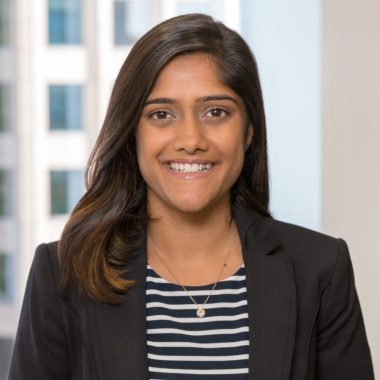 Trisha Pal
Trisha Pal
G26 student in M.S. Sustainability program
Graduate School of Arts & Sciences
Trisha Pal is a candidate for the Masters in Sustainability at Tufts University and currently serves as the Senior Responsible Innovation Manager at Verizon. In this role, she focuses on climate resilience, economic development, and societal governance, advocating for ethical and sustainable practices in climate, technology, and workforce initiatives like Verizon Skill Forward. She collaborates closely with government and nonprofit partners to drive equitable economic development through public-private partnerships. As a Council member, she is committed to advancing the intersection of sustainability, technology, and inclusive economic growth. Trisha holds a Bachelor of Science in Economics and Finance from Bentley University.
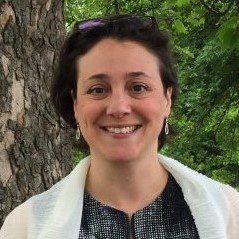
Barbara Stein
Vice President for Operations
Central Administration
Barbara Stein is Vice President for Operations overseeing Dining, Tufts Public and Environmental Safety (TUPD and EHS), Campus Planning, Real Estate, Facilities Services, Energy Programs and Capital Program Management. Barbara joined Tufts in 2013 as Director, Strategic Capital Programs and in just two years was promoted to Director, Capital Programs responsible for all capital projects, renewal planning, co-leading capital planning for the University on all campuses.
Before arriving at Tufts, Barbara served as Senior Project Manager at Harvard University, developing systems and standards for project delivery within the 2.4 billion House Renewal program. At GLC Development Resources she worked with local non-profits and institutions on real-estate related planning and capital projects. During years with the Massachusetts State College Building Authority, Barbara managed strategic planning and oversaw the Annual Capital Repair and Improvement Program for residence halls at the nine State Colleges in Massachusetts.
Dano Weisbord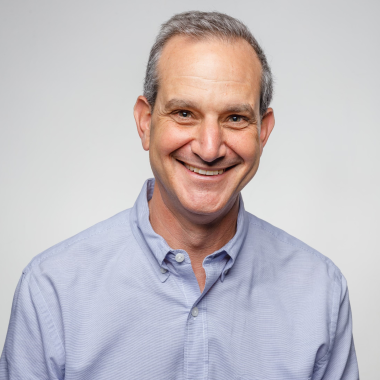
Chief Sustainability Officer and Executive Director of Campus Planning
Central Administration
Dano Weisbord joined Tufts in October 2022 to work with senior leadership to further Tufts’ commitment to be as a higher education leader in sustainability and climate matters across the university, bridging campus operations with education, co-curricular and research activities. Dano came to Tufts from Smith College where he held the position of Associate Vice President for Campus Planning and Sustainability and COVID-19 Administrator. Over his fourteen years at Smith, Dano served as Director of the Center for the Environment, Ecological Design and Sustainability and was the College’s Founding Director of Sustainability establishing sustainability and campus planning functions. A Jumbo, Dano has a Master of Arts in Urban and Environmental Policy and Planning from Tufts and a Bachelor of Fine Arts in Industrial Design from Rhode Island School of Design.
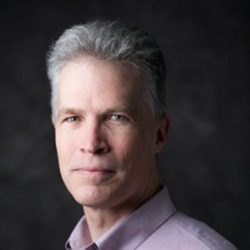 Parke Wilde
Parke Wilde
Professor
Friedman School of Nutrition Science and Policy
Parke Wilde is a Professor at the Friedman School and a leading authority on U.S. food policy and the economics of U.S. federal nutrition assistance programs. He led a national evaluation on the breastfeeding impact of WIC package changes and was director of design for the Healthy Incentives Pilot (HIP) in the Supplemental Nutrition Assistance Program. He has been a member of the Institute of Medicine's Food Forum, the AGree agricultural policy initiative, the National Academies panel on "Improving Consumer Data for Food and Nutrition Policy Research," and the technical advisory committee for the Menus of Change initiative. He also directed the USDA-funded RIDGE grants program and currently directs a USDA-funded grants program on household food security measurement.
He is the author of the textbook, Food Policy in the United States: An Introduction, Second Edition (Earthscan/Routledge, 2018), which received the Distinguished Quality of Communication award from the Agricultural and Applied Economics Association (AAEA). His is co-organizer of the #flyingless initiative, an environmental project encouraging university and research communities to set goals and measure progress for greenhouse gas emissions, while preserving the good they do in the world.
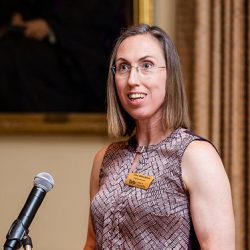
Tina Woolston
Sustainability Director
Central Administration
Tina Woolston has been the Director of the Office of Sustainability at Tufts since 2010 after first joining the Office in 2007 as the project coordinator focusing on outreach and education. She works with senior administrators and departments across Tufts to develop and support Tufts sustainability goals and efforts, ranging from transportation to carbon neutrality planning, sustainable living communities, and more. While at Tufts she has created new initiatives like education programs for students and employees, the annual Green Fund, and courses focused on action for sustainability, among many others.
Prior to coming to Tufts, Tina directed the sustainability program at Earthwatch Institute and co-founded her town’s climate action committee. She was one of the first 1,000 people to be trained by Al Gore as part of The Climate Reality Project.
Executive project support provided by:
Tiffany Bruschi
Senior Administrative Coordinator, Office of Sustainability and Office of University Strategy & Program Development
